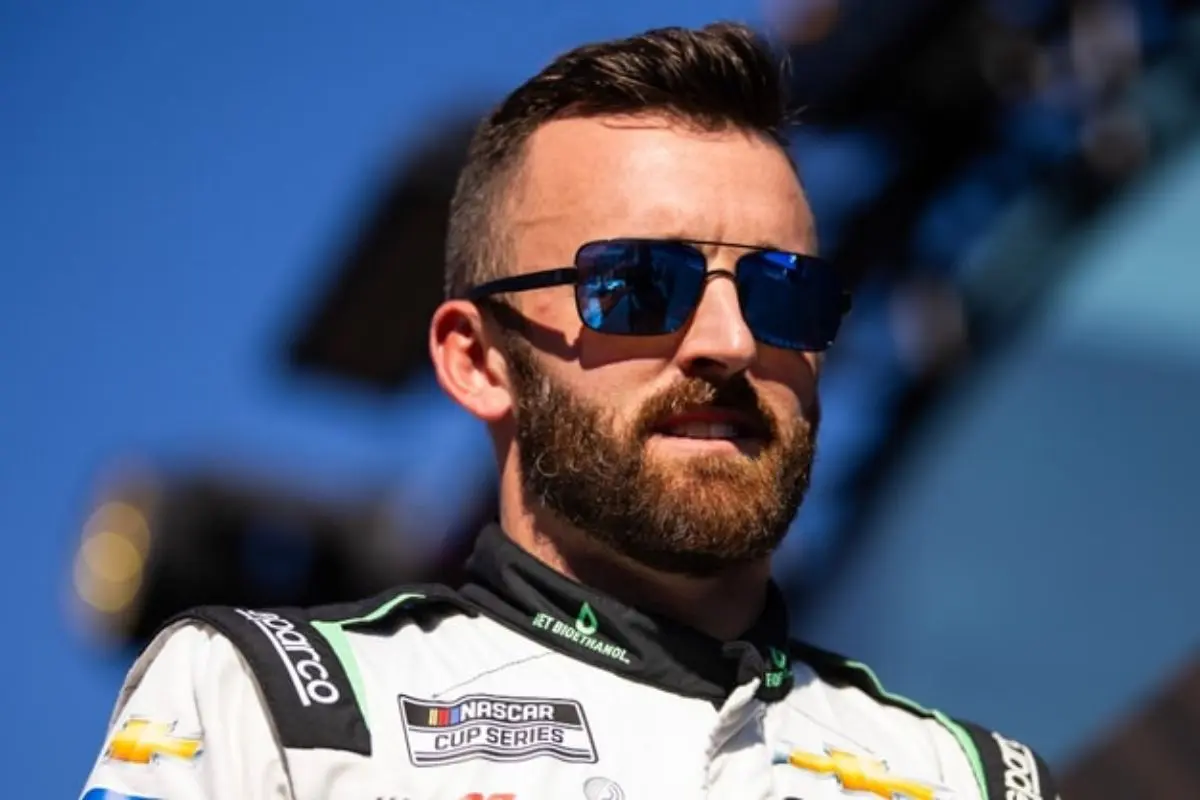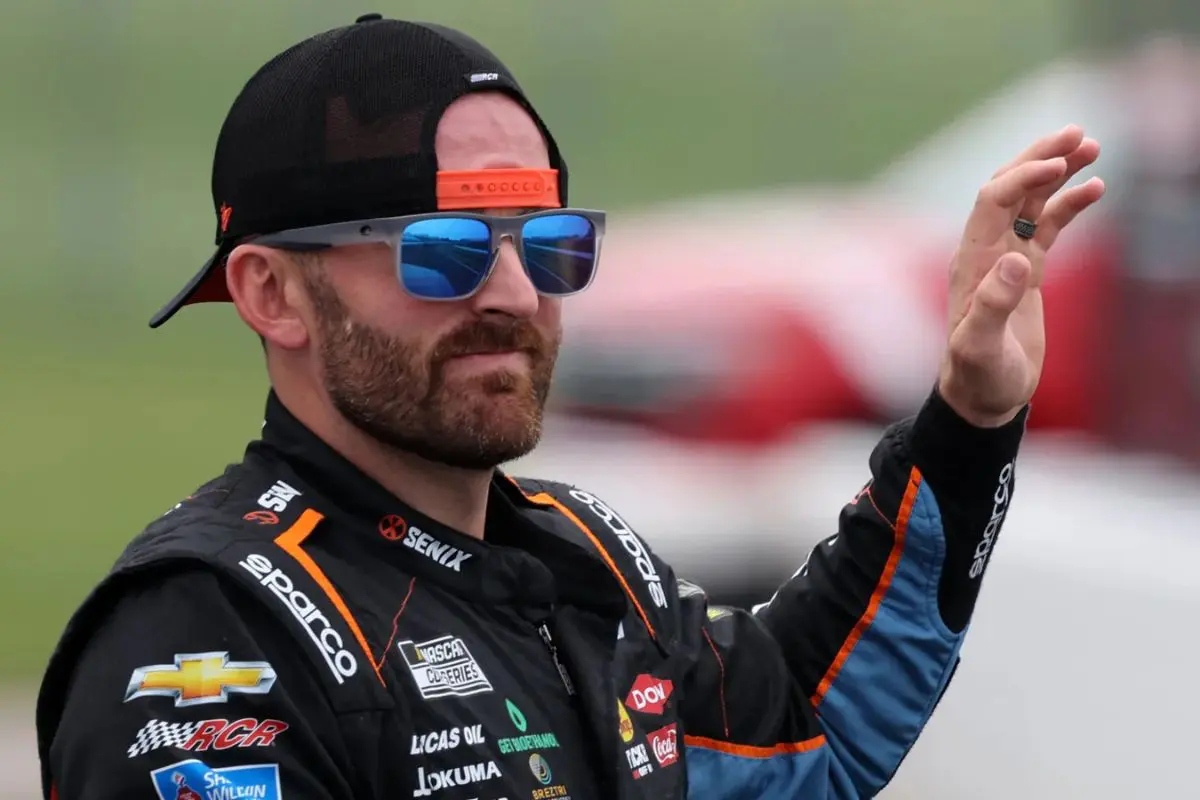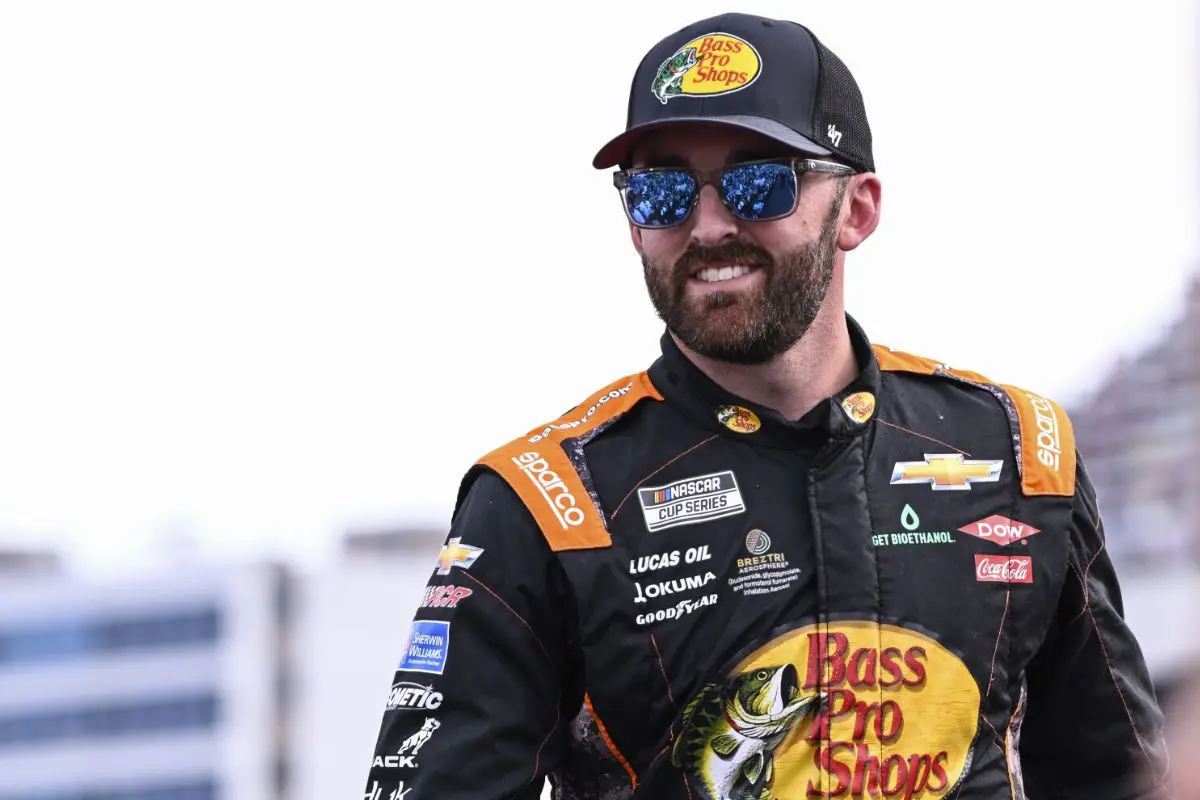Austin Dillon Faces Harsh Criticism: Austin Dillon‘s recent designation as the least favored competitor among NASCAR drivers raises critical questions about the evolving standards of conduct within the sport. The anonymous survey, revealing discontent particularly regarding his strategies during late-race restarts, reflects deeper issues of safety and professionalism that could impact the dynamics of competition as the playoffs near. With two drivers explicitly criticizing his tactics linked to a contentious incident at the Cook Out 400, the implications of this backlash extend beyond personal grievances. What does this mean for Dillon’s approach moving forward, and how might it influence the playoff landscape?
Key Highlights
- An anonymous survey revealed Austin Dillon as the least favored driver during late-race restarts, with two drivers explicitly criticizing him.
- Multiple drivers expressed frustration over Dillon’s aggressive and reckless tactics, raising safety concerns on the track.
- Dillon’s controversial incident at Richmond Raceway, leading to a penalty, fueled discontent among peers regarding his sportsmanship.
- NASCAR’s penalty against Dillon aimed to uphold competitive integrity and protect driver safety amid ongoing scrutiny of aggressive driving.
- Fan reactions are mixed, with some supporting Dillon’s racing style, while others voice concerns for safety and sportsmanship in NASCAR.
Survey Results and Driver Opinions
The recent anonymous survey conducted among NASCAR Cup Series playoff drivers has revealed a clear landscape of opinions regarding competition on the track, particularly emphasizing Austin Dillon‘s standing.
This survey, orchestrated by Bob Pockrass of Fox Sports during the NASCAR Cup Series Playoff Media Day, sought to uncover which drivers were least favored by their peers during late-race restarts, a critical moment that often defines race outcomes.
The results were telling, with Dillon emerging as a focal point of criticism. Among the 16 drivers surveyed, two explicitly mentioned Dillon as their least preferred competitor to have alongside them during these high-stakes situations.
One driver directly referenced “recent events,” implying a connection between past incidents and their current sentiment, while another driver remarked, “Austin Dillon, I can answer that one pretty easy,” highlighting the consensus against Dillon.
This feedback is not merely a reflection of personal rivalries; it also sheds light on Dillon’s recent performance and decision-making on the track.
In an environment where trust and predictability are paramount, the negative perceptions surrounding Dillon suggest that his actions may have raised concerns among fellow competitors.
The implications of such opinions can be far-reaching, affecting race strategies and alliances. As the playoffs progress, Dillon’s standing among his peers could greatly impact his competitive edge, necessitating a critical reassessment of his approach as he navigates the challenging dynamics of the NASCAR landscape.
Survey Methodology
Given the clear insights revealed in the survey regarding Austin Dillon, understanding the methodology behind this assessment is vital. The approach taken by the survey designer, Pockrass, reflects an effort to capture intricate opinions within the NASCAR community. By opting for a single, open-ended question, he allowed drivers to express their thoughts freely without the constraints of predefined categories.
The methodology can be broken down into four notable components:
- Question Design: Rather than separating opinions into “too good” and “sketchy,” the singular question invited a broader interpretation, which could yield richer qualitative data.
- Anonymity: Ensuring responses were anonymous likely encouraged openness among drivers, facilitating a more honest critique of their peers without fear of repercussions.
- Targeted Demographic: The survey specifically engaged NASCAR drivers, ensuring that insights come from individuals with direct experience and knowledge of the racing environment.
- Qualitative Focus: The open-ended nature of the question allowed for diverse perspectives, enabling respondents to elaborate on their views regarding Dillon and fostering a more thorough understanding of the sentiments within the driver community.
Through this methodology, the survey not only highlights individual opinions but also reflects broader themes and dynamics in NASCAR, providing a window into the competitive relationships that define the sport.
Controversial Incident at Richmond Raceway
Tensions flared during the Cook Out 400 at Richmond Raceway, culminating in a controversial incident that has since sparked intense debate within the NASCAR community.
Austin Dillon’s actions during the crucial final laps raised eyebrows and ignited fierce discussions among drivers and fans similarly. In a high-stakes overtime restart, Dillon deliberately collided with competitors Denny Hamlin and Joey Logano, a tactic that many perceived as a blatant disregard for sportsmanship.
This calculated move aimed to secure Dillon’s victory and strengthen his position in the Cup Series Playoff eligibility. However, the ramifications were immediate and severe. NASCAR officials swiftly assessed the situation, ultimately determining that Dillon’s conduct warranted a penalty, which invalidated the win.
This decision not only stripped Dillon of a potentially crucial victory but also highlighted the fine line between aggressive racing and unsportsmanlike behavior.
The incident has polarized opinions within the racing community. While some argue that Dillon’s approach exemplified the cutthroat nature of competitive racing, others contend that such tactics diminish the integrity of the sport.
The incident has prompted a broader discussion on the standards and expectations of driver conduct, raising questions about how far one should go for victory.
NASCAR’s Justification for the Penalty
In the context of the controversial incident at Richmond Raceway, NASCAR’s decision to penalize Austin Dillon was rooted in a commitment to uphold the integrity of the sport.
Elton Sawyer, NASCAR’s senior vice president of competition, articulated the rationale behind the penalty, emphasizing that a threshold was crossed during the race. The governing body carefully analyzed the data surrounding the incident, leading to their determination.
“I think in all due respect to the appeal process, we looked at this and the totality of everything that happened as you enter Turn 3 and as the cars got to the start/finish line.
“So, as we look through all of that data, we came to the conclusion that a line had been crossed. Our sport has been based going for many, many years, forever, on good, hard racing. Contact has been acceptable. We felt like, in this case, that the line was crossed.” – Sawyer
Key factors contributing to NASCAR’s justification include:
- Totality of Evidence: NASCAR reviewed all available data from the race, focusing on the moments leading into Turn 3 and at the start/finish line.
- Historical Context: The organization highlighted that while contact between cars is a staple of racing, there exists a line that, when crossed, compromises safety and sportsmanship.
- Commitment to Fairness: The penalty reflects NASCAR’s dedication to ensuring a level playing field, where aggressive racing does not devolve into reckless behavior.
- Protecting Drivers: The decision highlights a broader aim of safeguarding the well-being of all competitors on the track, reinforcing that certain actions are deemed unacceptable.
Dillon’s Defense and Upcoming Playoffs
Amid the backdrop of mounting criticism, Austin Dillon has staunchly defended his actions during the controversial incident at Richmond Raceway.
In a tactical move to justify his conduct, Dillon drew parallels between his racing tactics and those employed by prominent figures in NASCAR, such as Denny Hamlin and Joey Logano. By referencing their aggressive maneuvers, Dillon positioned his actions within the broader context of competitive racing, suggesting that such tactics are commonplace in the pursuit of victory.
Dillon articulated his perspective, stating, “I’ve seen Denny and Joey make moves that have been running people up the track to win.” This assertion emphasizes the competitive nature of NASCAR, where the desire to secure a win often leads to contentious on-track decisions.
“I’ve seen Denny and Joey make moves that have been running people up the track to win. This is the first opportunity in two years for me to be able to get a win. I drove in there and kept all four tires turning across the start/finish line.” – Dillon
He further highlighted the rarity of his opportunity to claim victory, remarking, “This is the initial opportunity in two years for me to be able to get a win.” Such statements reveal the intense stress drivers face and the lengths to which they will go to capitalize on fleeting chances.
“To me, I’ve seen a lot of stuff over the years in NASCAR where people move people. It’s just part of our sport. You know what I mean? Remember when Joey said ‘short-track racing’. He knows what it was. In your shoes, what would you do?” – Dillon
As the NASCAR Cup Series Playoffs approach, commencing this weekend at Atlanta Motor Speedway, Dillon’s defense accentuates the complexities of racing ethics in a sport where split-second decisions can define a season.
The forthcoming races will test not only his skills but also his ability to navigate the scrutiny that accompanies his actions. As drivers gear up for the playoffs, Dillon’s situation serves as a reminder of the fine line between competitive spirit and controversial tactics in NASCAR.
News in Brief: Austin Dillon Faces Harsh Criticism
The backlash against Austin Dillon from fellow NASCAR drivers highlights a crucial intersection of safety and competitive integrity within the sport. The anonymous survey results reveal a notable consensus regarding concerns over Dillon’s racing tactics, particularly during late-race restarts. As the playoffs approach, the scrutiny surrounding Dillon may intensify, necessitating a reevaluation of strategies to foster a safer and more sportsmanlike environment in NASCAR, particularly in view of recent controversies and escalating tensions on the track.
ALSO READ: Austin Dillon’s Penalty Battle: Did NASCAR’s Decision Favor Hendrick Motorsports?




